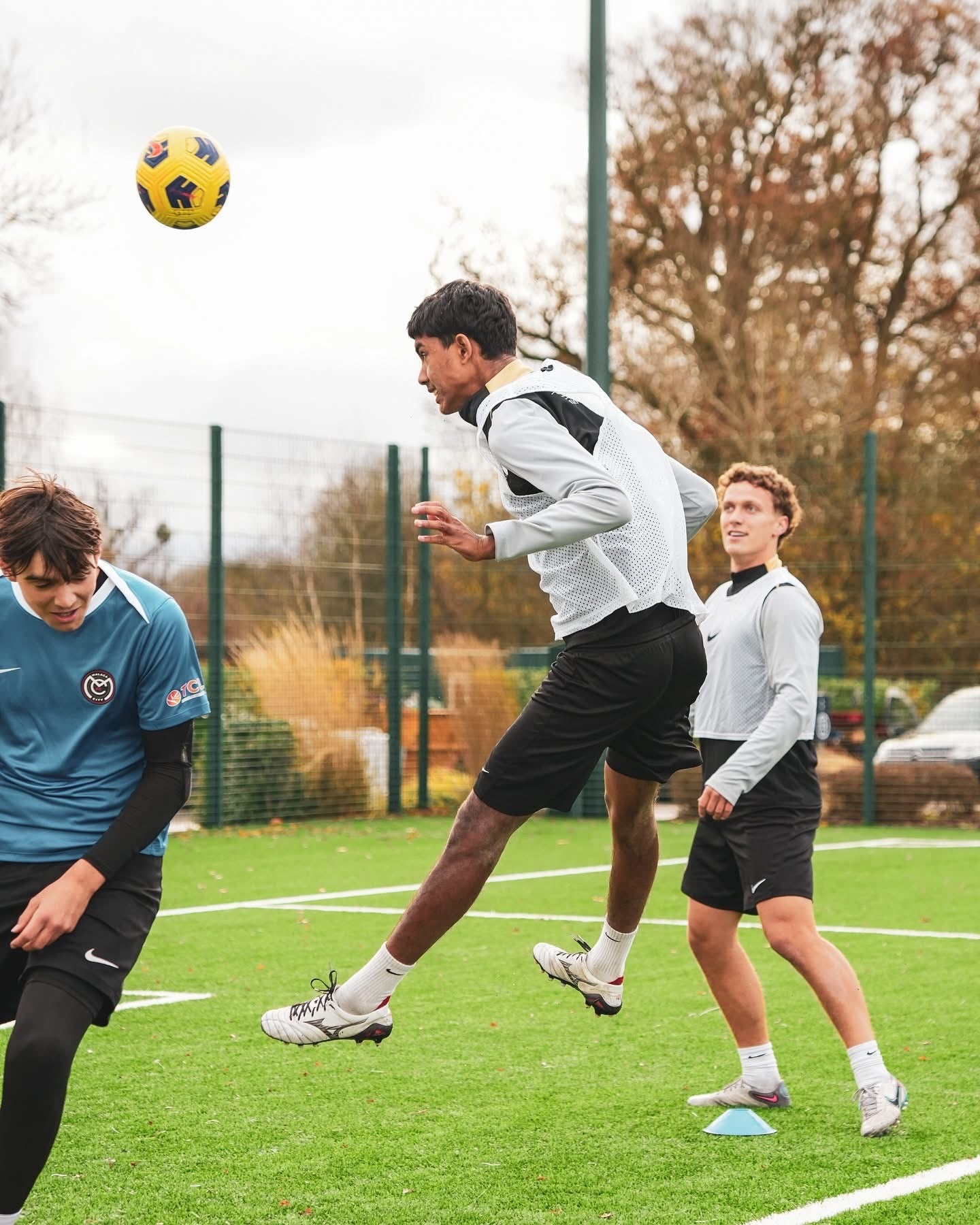Choosing the right curriculum is one of the most significant decisions a parent can make for their child’s education—and future. In the UK, multiple pathways exist, from GCSEs and A-Levels to the International Baccalaureate (IB) and BTECs. For students attending boarding schools—especially those balancing academics with elite football training—understanding how each curriculum shapes university access, scholarship opportunities, and career prospects is essential.
At Prestige Football Schools, we help families navigate both the academic and athletic sides of school placement. Whether your child is focused on reaching a top university or pursuing a professional football pathway, this guide will help you understand the impact of different UK curriculums on their future success.
Why Curriculum Choice Matters
Your child’s curriculum does more than shape what they learn—it determines how they are assessed, which universities they can apply to, and how prepared they are for future careers or elite sport. Certain curriculums may suit independent, self-directed learners. Others support a more structured, exam-focused approach.
Curriculum choice can affect:
-
University applications (both in the UK and abroad)
-
Scholarship eligibility
-
Academic workload and stress management
-
Balance with extracurricular activities like sport
-
Long-term skill development (research, communication, problem-solving)
For families relocating to the UK or joining mid-way through a student’s education, understanding how each curriculum fits into the broader educational journey is crucial. Our Football School Advisory Service helps families make confident decisions about curriculum fit, especially for players managing training alongside study.
GCSEs: The Foundation of UK Education
The General Certificate of Secondary Education (GCSE) is the standard academic qualification taken by most UK students between the ages of 14 and 16 (Years 10–11). Students typically study 8–10 subjects and sit exams at the end of Year 11.
Key Features of GCSEs:
-
Graded 9–1 (with 9 being the highest)
-
Compulsory subjects: English, Maths, and Science
-
Optional subjects include Languages, Humanities, Arts, and Sport
-
Exams are mostly taken at the end of Year 11 (some coursework depending on subject)
How it shapes opportunities:
-
Strong GCSE results are often required for entry into competitive Sixth Form programmes and elite A-Level or IB pathways.
-
Universities will review GCSEs as part of admissions—particularly for competitive courses like Medicine, Law, or Engineering.
-
For footballers, balancing GCSEs with training can be challenging, but many football boarding schools offer integrated support to help manage workloads.
If your child is entering the UK school system at this stage, we help align them with the right Year 10 or 11 placement and build study plans to catch up where needed.
A-Levels: Specialisation and Depth
Advanced Level qualifications (A-Levels) are the traditional route to UK university. Taken over two years (Years 12–13), students usually choose 3 or 4 subjects that align with their academic strengths or university goals.
Key Features of A-Levels:
-
In-depth study of chosen subjects
-
Assessment is mostly exam-based
-
Allows for specialisation (e.g., Maths, Biology, Economics)
-
Ideal for students with a clear academic or career direction
How it shapes opportunities:
-
A-Levels are the most recognised qualification for UK university entry, including Oxford and Cambridge.
-
They’re also widely accepted by universities in the US, Canada, Europe, and beyond.
-
Students aiming for football scholarships in the US can combine A-Levels with SAT preparation for NCAA eligibility.
Many of our students use A-Levels to secure academic scholarships or balance competitive football with a focused academic load. Through our mentorship programme, we help players stay on track during critical exam years.
International Baccalaureate (IB): Breadth and Global Recognition
The International Baccalaureate Diploma Programme (IBDP) is an internationally respected alternative to A-Levels. It is offered by select UK schools and focuses on holistic education, critical thinking, and independent research.
Key Features of the IB:
-
Students study 6 subjects (3 at Higher Level, 3 at Standard Level)
-
Includes core components: Extended Essay (EE), Theory of Knowledge (TOK), and Creativity, Activity, Service (CAS)
-
Emphasises inquiry-based learning, global awareness, and well-rounded development
How it shapes opportunities:
-
Highly regarded by international universities, especially in the US and Europe
-
Encourages skills like time management, research, and academic independence
-
Demands a significant workload—best for mature, self-directed learners
The IB can be challenging to combine with high-level football due to its academic intensity. However, for students looking for international university options or broad academic development, it’s an excellent path. We help families determine whether the IB or A-Level path better suits their child’s goals and lifestyle.
BTECs: Applied Learning and Career Readiness
The BTEC (Business and Technology Education Council) qualification is a more vocational pathway, focused on practical skills and coursework. It is often offered alongside, or in place of, A-Levels at some Sixth Form colleges and football academies.
Key Features of BTECs:
-
Available in subjects like Sport, Business, Engineering, and IT
-
Assessment is largely coursework-based
-
Designed for hands-on learners and career-focused students
-
Often paired with additional qualifications such as A-Level English or Maths
How it shapes opportunities:
-
Accepted by many UK universities (though not all top-tier ones)
-
Popular with students pursuing football coaching, sports science, or direct entry into the workforce
-
Ideal for student-athletes balancing academic development with intensive training schedules
At Prestige, we guide families through whether a BTEC in Sport—offered by some football-focused schools—is appropriate for their child’s longer-term academic and athletic objectives.
How Curriculums Affect Football Pathways
Curriculum choice isn’t just about academics. For young athletes, it also determines how well their school life supports their football development.
Consider:
-
Does the school structure allow time for daily training?
-
Is there academic flexibility during tournaments or trials?
-
Are there staff who understand sport–study balance?
-
Is the curriculum recognised by target universities (e.g., for football scholarships abroad)?
We often help players map academic timetables around their training, ensuring they maintain eligibility for both UK and international options. Our development pathway service ensures that neither study nor sport is compromised.
International Students: Adapting to a New Curriculum
For families relocating to the UK, adapting to a new curriculum can be one of the biggest challenges. Differences in grading systems, subject structure, and language expectations can feel overwhelming.
We recommend:
-
Entering in Year 9 or Year 10 if possible, to allow time to adjust before exams
-
Considering EAL (English as an Additional Language) support programmes
-
Choosing schools experienced in supporting international students and offering multiple curriculums
-
Attending summer programmes or bridging courses in advance of enrolment
We also provide relocation support to ensure academic, emotional, and cultural readiness for students entering the UK system.
Questions to Ask When Comparing Curriculums
When researching schools or speaking to admissions teams, ask:
-
What curriculum(s) do you offer, and why?
-
How do you support footballers with academic workload?
-
What are your university destinations by curriculum type?
-
Are there specific pathways for international students?
-
Can I speak to a parent or student who’s taken this route?
Don’t assume that one curriculum is better than another—it all depends on your child’s strengths, goals, and preferred learning style.
Final Thoughts: Choose with the Future in Mind
Curriculum isn’t just about what happens in the classroom—it's about building a bridge to your child’s future. Whether they want to attend a UK university, earn a US football scholarship, or pursue a career in sports performance, the right academic path helps get them there.
At Prestige Football Schools, we take a holistic approach—helping families choose both the best school and the best curriculum to support their child’s development on and off the pitch.
If you’d like help evaluating which curriculum is right for your child, speak to our team for tailored advice and curriculum-matching support.
Useful Resources:



